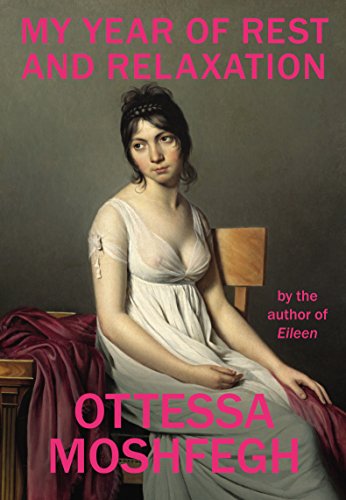4thace reviewed My year of rest and relaxation by Ottessa Moshfegh
What can happen when someone tries obliterating her mind
5 stars
This is the first book I've read by this celebrated author who came out with this particular work not long before the COVID-19 pandemic with its grief and trauma erupted, causing a big reception on social media then. She has been influenced by writers who take risks with characters who live on the edge. Here the protagonist is struggling with grief and trying to extinguish her consciousness through drugs for a year, believing it will wipe herself clean again. The writing makes it clear she is doing bad things, though not to get high, and subjects her to as much ridicule as anyone else. This is not as much a moral judgment as a description of the mental and physical process of abusing her body nearly to the point of death, with the gross parts left in. The disgusting sections serve a function, and even the nihilism gets a take-down here. The prose is precisely crafted whether describing mourning customs, status signals in the year 2000, or the aftermath of a manic blackout. The protagonist has little interest in sticking to norms of behavior in any but an a superficial, ironic fashion. At the same time, it goes deep into philosophy as we spend so much time inside the head of a person who is relentlessly pushing herself into areas that seem anti-life, destructive, but also banal.
I was thinking if this story had been instead an adventure about an astronaut sleeping while traveling to a distant star, how much would my attitude to the story change? Why or why not? Or if it were about a vampire unconscious in a casket through centuries? By the end of the story, there is a remarkable section where thoughts about art and ordinary activities suggest an entirely different attitude to the reason for conscious life which felt like it took the book into a whole different plane. I did not expect to like this book as much as I did even as I recognized that it would not be the sort of thing for so many people I know.
The audiobook narration by Julia Whelan brought out the dark humor and portrayed the annoying characters in a way that helped make them seem like real people. I was able to sense now and then that there was real pain going on alongside the nonsense.

